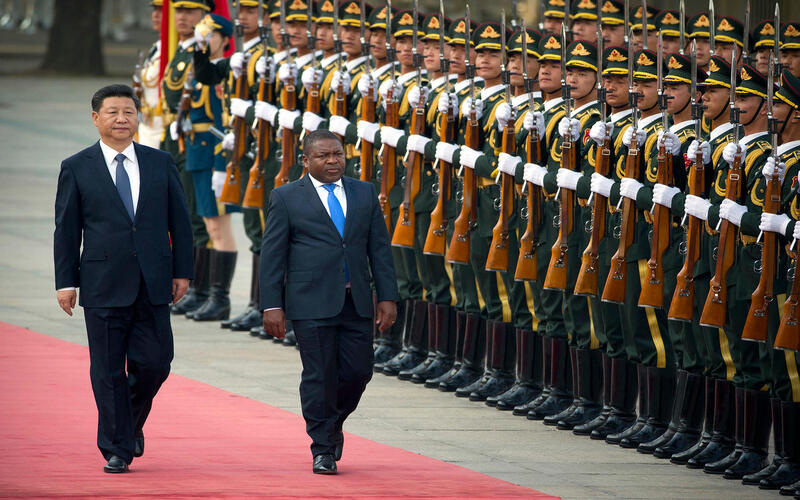
Independent Report – China expands strengthening its influence in Africa through a series of global strategic military and political programs. This move is seen as part of Beijing’s broader effort to expand its global network and build strong alliances in a region rich in natural resources. Analysts suggest that China’s expansion in Africa is not only driven by economic interests but also by its ambition to solidify its position as a global leader.
One of the primary ways China is bolstering its presence in Africa is through military programs. China has been providing military aid, including training and arms sales, to several African countries. For instance, China has established military training programs and donated equipment to nations such as Sudan, Zimbabwe, and Ethiopia. These initiatives are designed to build trust and foster long-term partnerships with African governments.
In addition to direct military support, China has also been involved in peacekeeping missions under the United Nations banner. Chinese troops have been deployed to conflict zones such as South Sudan and the Democratic Republic of Congo, further cementing China’s role as a key player in African security.
Beyond military efforts, China has been actively using soft power to strengthen its political influence in Africa. This includes significant investments in infrastructure projects, such as roads, railways, and ports, under the Belt and Road Initiative (BRI). These projects not only improve local infrastructure but also create jobs and stimulate economic growth, earning China goodwill among African nations.
China has also been engaging in diplomatic efforts, such as supporting African leaders in international forums and offering debt relief to struggling economies. By positioning itself as a reliable partner, China has managed to gain the support of many African countries in global institutions like the United Nations.
“Also Read: The Timeless Legacy of Thorn Ville Church: A Journey Through Its History and Origins”
China’s growing presence in Africa is driven by several strategic goals. First, the continent is rich in natural resources, such as oil, minerals, and rare earth metals, which are crucial for China’s booming economy. By securing access to these resources, China ensures the sustainability of its industrial and technological growth.
Second, Africa’s growing population and emerging markets present significant opportunities for Chinese businesses. By investing in infrastructure and fostering political ties, China is laying the groundwork for long-term economic partnerships.
Lastly, China’s influence in Africa strengthens its position on the global stage. With the support of African nations, China can advance its interests in international organizations and counterbalance the influence of Western powers.
China’s expanding influence in Africa has not gone unnoticed by other global powers, particularly the United States and European nations. These countries have expressed concerns about China’s growing footprint, citing issues such as debt dependency and the erosion of democratic values in African nations.
Some critics argue that China’s infrastructure projects often come with strings attached, leading to unsustainable debt levels for African countries. This has sparked debates about the long-term implications of China’s involvement in the region.
For Africa, China’s involvement presents both opportunities and challenges. On the one hand, Chinese investments have led to significant infrastructure development, job creation, and economic growth in many countries. On the other hand, there are concerns about the environmental impact of large-scale projects and the potential loss of sovereignty due to heavy reliance on Chinese loans.
African nations must carefully navigate their relationships with China to maximize the benefits while minimizing the risks. This requires transparent agreements and a focus on sustainable development.
“Also Read: Jokowi Acknowledges Prabowo’s Request at Gerindra Anniversary”
As China continues to expands its global influence in Africa, the dynamics of global power are shifting. Africa is becoming a key battleground for influence among major powers, with China leading the charge through its military and political programs.
For China, Africa represents not only a source of resources and economic opportunities but also a platform to assert its global leadership. For Africa, the challenge lies in leveraging these partnerships to achieve sustainable development and maintain its autonomy.
In the coming years, the relationship between China and Africa will likely deepen, shaping the future of both regions and the broader global order. The world will be watching closely as this partnership evolves, with significant implications for international politics and economics.